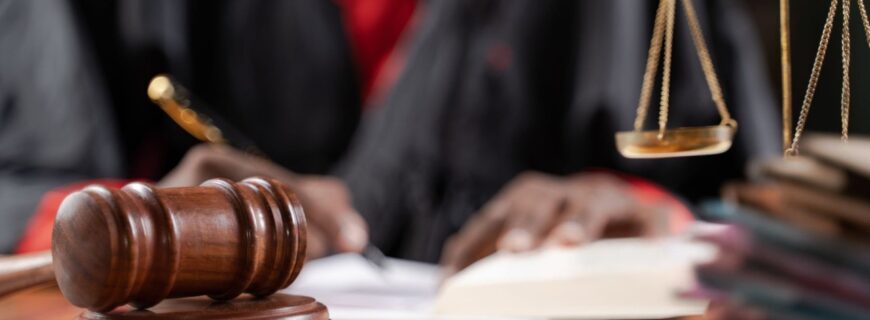
Bankruptcy Chapter 13
Bankruptcy Chapter 13 provides a powerful and often preferred solution for individuals with regular income who are facing overwhelming debt but wish to avoid liquidating their assets, such as their home or car. Unlike Chapter 7, which involves selling non-exempt assets, Chapter 13 focuses on reorganization and repayment, allowing debtors to keep their property while making manageable payments to creditors over a period of three to five years under a court-approved plan. At the Law Office of Lawrence Keitt, we understand the immense stress that debt can cause and are dedicated to guiding clients through the complexities of Bankruptcy Chapter 13, helping them secure a fresh financial start while protecting their valuable assets.
The primary purpose of Bankruptcy Chapter 13 is to enable individuals with a consistent income to pay all or part of their debts through a structured repayment plan. This chapter is particularly beneficial for those who are behind on mortgage payments, car loans, or other secured debts and want to prevent foreclosure or repossession. It also offers a way to catch up on priority debts like child support arrears or certain tax obligations. Debtors propose a repayment plan, and if approved by the court, they make regular payments to a bankruptcy trustee, who then distributes the funds to creditors according to the plan. This structured approach provides financial discipline and clear relief from creditor harassment.
Upon filing a Bankruptcy Chapter 13 petition, a critical legal protection known as the automatic stay immediately takes effect. This stay instantly halts most collection activities by creditors, including lawsuits, wage garnishments, harassing phone calls, and, importantly, foreclosures and repossessions. This immediate cessation of collection efforts provides debtors with much-needed breathing room to assess their finances, organize their affairs, and develop a feasible repayment plan without the constant pressure and fear of losing their property. For many, this automatic stay is one of the most compelling reasons to pursue Chapter 13, offering a temporary shield to rebuild.
Eligibility for Bankruptcy Chapter 13 requires that you have a regular income and that your secured and unsecured debts do not exceed certain statutory limits. The “means test,” also used in Chapter 7, helps determine if your income is sufficient to make payments under a Chapter 13 plan. Developing the repayment plan is the most intricate part of the process. This plan, typically lasting three to five years, details how you will pay back secured debts (like a mortgage or car loan) that are in arrears, how priority debts (like certain taxes and child support) will be paid in full, and how unsecured creditors (like credit card companies and medical providers) will receive a percentage of what they are owed. The plan must be feasible, meaning you must demonstrate the ability to make the proposed payments, and it must satisfy various legal requirements.
Key benefits of filing for Bankruptcy Chapter 13 include:
- Protection of Assets: You get to keep your home, car, and other valuable property, even if you are behind on payments. The plan allows you to catch up on missed payments over time.
- Stopping Foreclosure and Repossession: The automatic stay and the repayment plan effectively stop these actions, giving you a chance to save your property.
- Debt Consolidation: All your debts are consolidated into a single, manageable monthly payment to the trustee.
- Discharge of Debts: Upon successful completion of the repayment plan, remaining eligible unsecured debts are discharged, providing a true fresh start.
- Protection for Co-Signers: Chapter 13 can offer protection for individuals who co-signed on debts with you, preventing creditors from pursuing them during your repayment period.
Navigating the complexities of drafting, filing, and confirming a Bankruptcy Chapter 13 plan requires experienced legal counsel. Errors in calculating income, expenses, or debt classifications, or proposing a plan that is deemed unfeasible by the court or objected to by creditors, can lead to delays or dismissal of your case. Lawrence Keitt meticulously works with clients to gather all necessary financial documentation, accurately assess their income and expenses, and craft a detailed repayment plan that is both compliant with bankruptcy laws and achievable for the client.
At the Law Office of Lawrence Keitt, we provide comprehensive guidance throughout the entire Bankruptcy Chapter 13 process. From preparing the initial petition and attending the meeting of creditors (the “341 meeting”) with you, to negotiating with creditors and the bankruptcy trustee, and representing you at confirmation hearings, Lawrence Keitt stands as your dedicated advocate. Our goal is to alleviate the stress of overwhelming debt, protect your assets, and guide you towards a stable and secure financial future.
If you are struggling with debt, facing foreclosure or repossession, but want to keep your assets, Bankruptcy Chapter 13 may be the right solution for you. Contact the Law Office of Lawrence Keitt today for a free, confidential consultation. Let us put our expertise to work, helping you reorganize your finances and reclaim your peace of mind.

